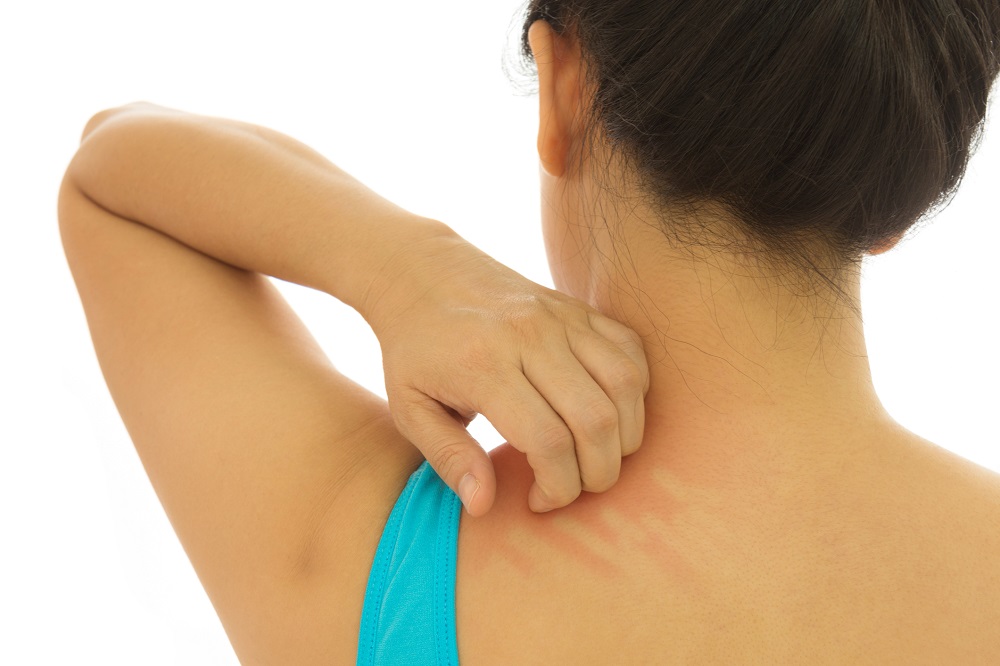Topics

Is it possible to be allergic to exercise? I always get hives after I go the gym, run outside or exercise at home. Others may develop a fine, itchy rash. Friends and family members might laugh at the suggestion of being allergic to exercise and demand to witness it happening, but there really is an explanation.
Urticaria, also known as hives, is usually associated with allergies. However, it might appear as a result of exposure to unexpected environmental triggers including:
- Physical stroking of the skin (dermographism)
- Heat/elevation of body temperature (heat contact urticaria/cholinergic urticaria)
- Cold (cold contact urticaria)
- Exercise (exercise-induced urticaria)
- Water (aquagenic urticaria)
- Sunlight (solar urticaria)
- Vibration (vibratory urticaria)
- Pressure (delayed pressure urticaria)
The mechanism behind hives isn’t exactly known, but it is most likely due to the abnormal release of chemical mediators from allergy cells in the skin, known as mast cells, as a reaction to these environmental stimuli.
Symptoms can range from a few mild hives, to widespread and disabling itchy hives. Some patients may also present with swelling of the lips or face, known as angioedema. Typically, diagnostic testing or physical challenges are not used for these urticarias, as the physical stimulus is usually required to trigger the appearance of hives.
Therefore, care for patients who experience these types of hives is focused on the relief of symptoms. Fortunately, antihistamine medications are very effective in reducing or preventing the rashes, and this condition is often transient. However, avoidance of the physical stimuli is not always possible.
If the physical trigger is not clear, there is a history of anaphylaxis or the hives do not respond adequately to allergy medications, then a referral to an allergist is recommended.